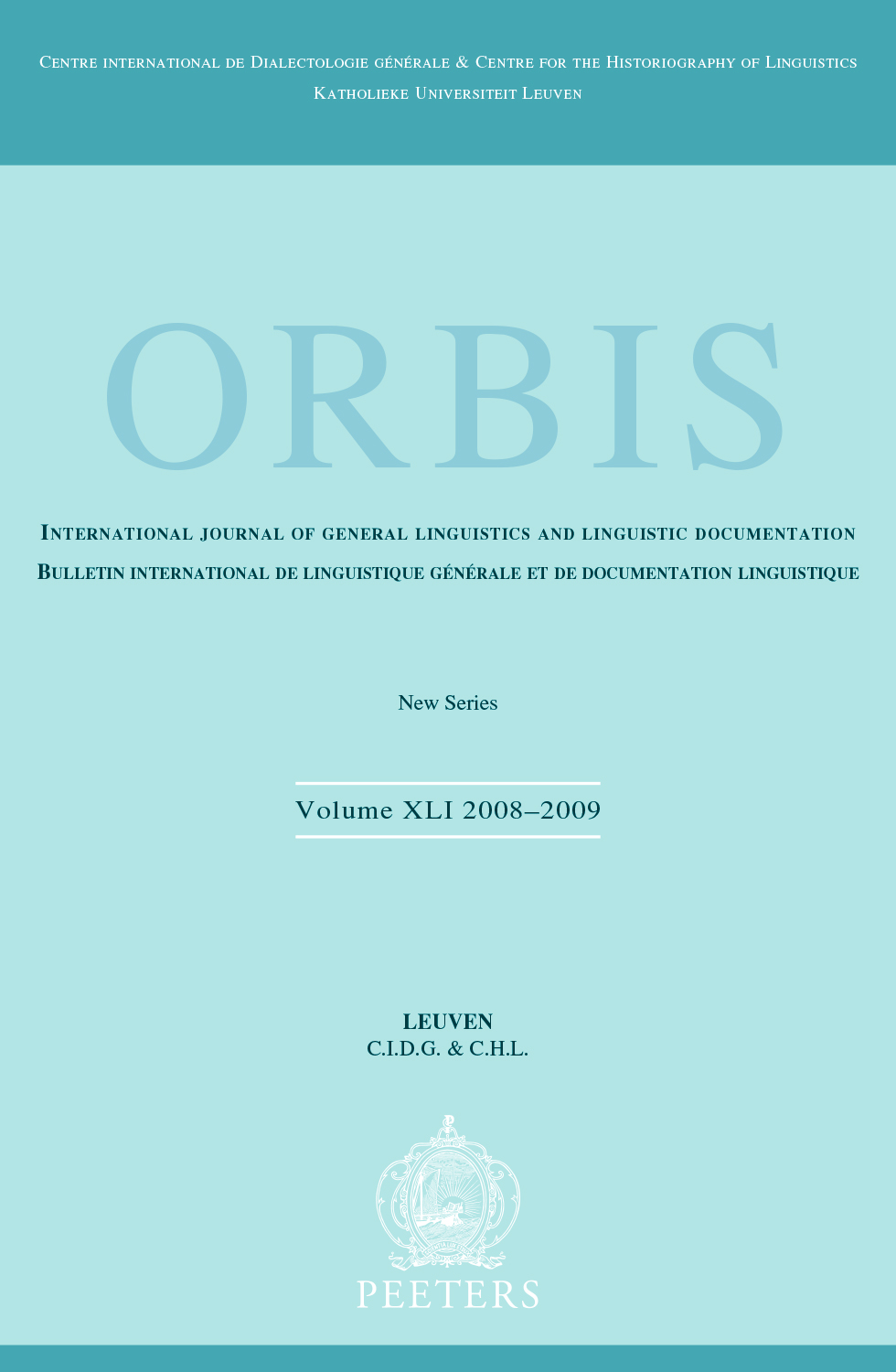 previous article in this issue previous article in this issue | next article in this issue  |

Preview first page |
Document Details : Title: Morphophonemic Illformedness in an Obsolescent Dialect Subtitle: A Case Study of Trinidad Spanish Author(s): MOODIE, Sylvia Maria Journal: Orbis Volume: 34 Date: 1985-1987 Pages: 215-230 DOI: 10.2143/ORB.34.0.2013018 Abstract : Dorian (1981) suggest that the semi-speaker is the one who chooses to use a low-prestige language which he controls imperfectly. She further points out that loyalty to the low-prestige language may be due to all or one of the following factors: (1) Cross-generational linguistic socialization outside the nuclear family. (2) A highly valued sense of community identity, fostered especially by temporary or permanent exile. (3) A personality characterized, especially in childhood years, by marked inquisitiveness and gregariousness. When applied to the Trinidad Spanish community Dorian's three factors are acceptable up to a point. Many of the imperfect or semi-speakers were exposed to Spanish in the wider extended family group or village. In most cases these individuals lived in villages that were isolated from the English speaking communities and id not have interaction with them on a continuous basis during the earlier years. |
|


